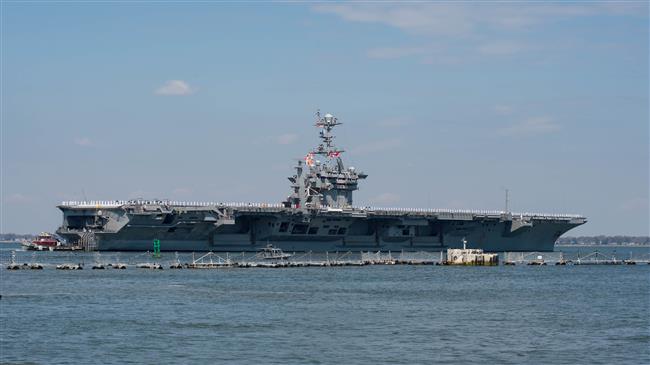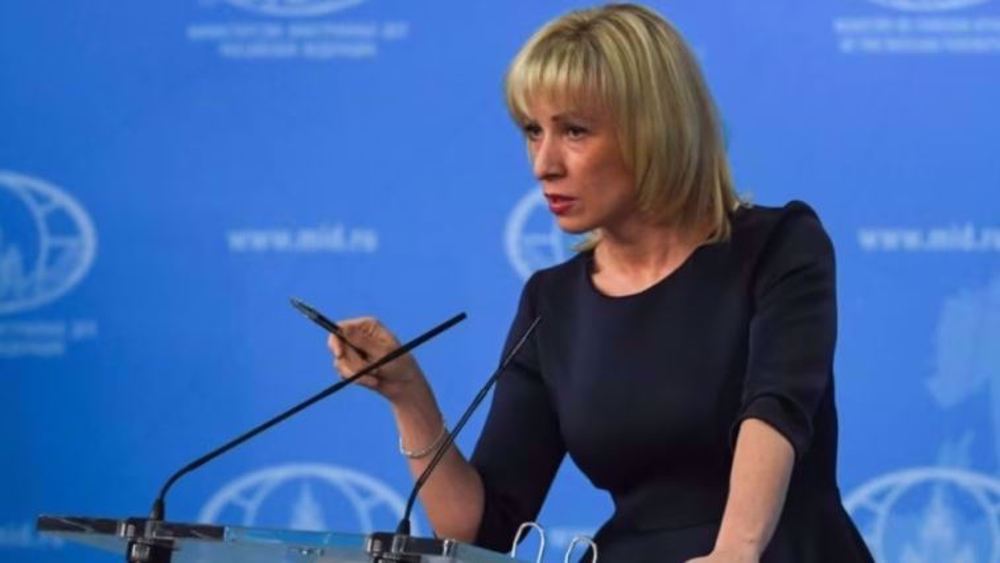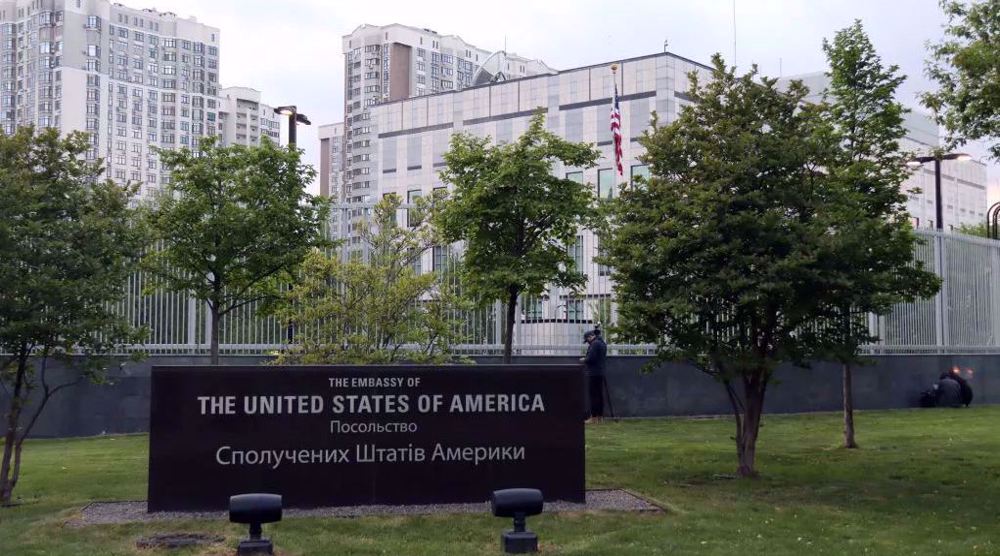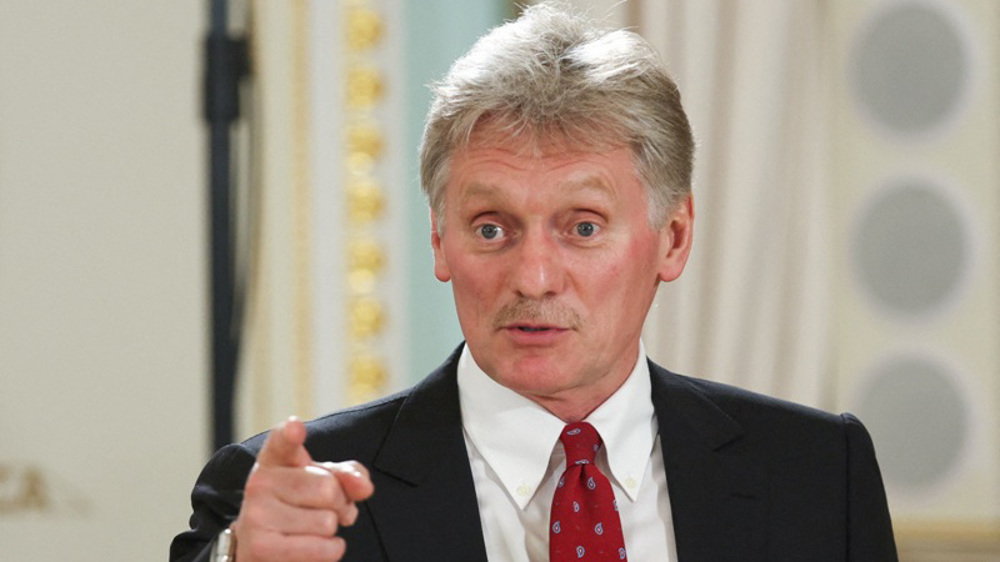US keeping warships in Europe to ‘contain’ Russia: Report
The United States military is reportedly considering keeping an aircraft carrier strike group in Europe instead of deploying it to the Middle East, a move that Pentagon sources say is aimed at deterring Russia.
In a break with tradition, the US Navy is mulling extending the Truman Carrier Strike Group’s mission in the Mediterranean Sea, cancelling the second leg of its tour in the Persian Gulf region, Defense News reported over the weekend, citing three unnamed military sources.
The ship departed its base in Virginia last week as part of a regular deployment to Europe with the US Navy's Sixth Fleet, which is headquartered in Naples, Italy.
One defense official noted that the move was “under discussion” but officials had yet to make a decision.
Keeping the warships in Europe means that they will skip a trip through the Suez Canal and into US Central Command territory, a major departure from the routine missions US Navy ships have taken over the past years to carry out missions in support of US military operations in the Middle East. Passing through “The Ditch” has usually been an inseparable part of those trips.
If approved, the new operation plan would allow US military assets to perform more patrols in strategic areas off Russia such as the Baltic and the Black Sea, said Jerry Hendrix, a retired Navy captain and analyst with the Center for a New American Security.
According to the report, the move would be a response to Russia’s activities in the region and falls in line with President Donald Trump’s National Defense Strategy, which calls on the military to be less operationally predictable.
In December 2017, Trump unveiled a new "America First" national security strategy that named China and Russia as "competition," claiming that the two countries sought to "challenge American power, influence, and interests."
In its National Defense Strategy, the Pentagon states that it is driven by great power competition and not terrorism.
Russian President Vladimir Putin has criticized Trump’s national security strategy as both “offensive” and “aggressive,” adding that Moscow would take due notice of the stance.
Iran, Russia sign MoU to strengthen security cooperation
VIDEO | Iran marks defeat of US military operation in Tabas Desert
VIDEO | Press TV's news headlines
US troopers crack down on pro-Palestinian protests at University of Texas
VIDEO | German warship departs Red Sea as EU 'naval mission' fails
VIDEO | Palestinians inspect rubble of destroyed building in Rafah
Yemeni forces strike US, Israeli vessels in fresh pro-Palestinian operations
‘Say no to Biden’: US college being pressed not to endorse genocide











 This makes it easy to access the Press TV website
This makes it easy to access the Press TV website